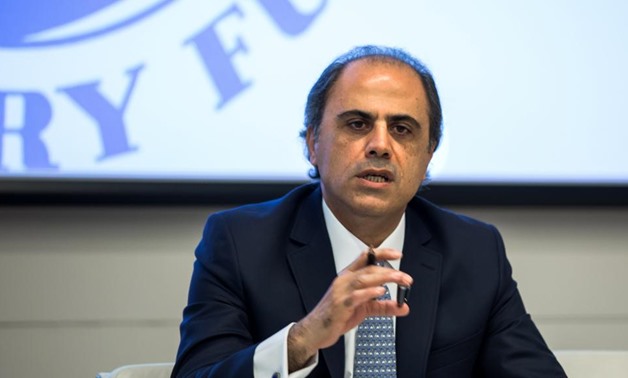
Jihad Azour, the director of the IMF’s Menap area, was a former Lebanese finance minister. Victor Besa for The National - REUTERS
CAIRO - 19 September 2022:Jihad Azour, director of the Middle East and Central Asia Department at the International Monetary Fund, said that negotiations to obtain new funding are continuing with Egypt and things are progressing according to the set schedule.
Prime Minister Mostafa Madbouli said earlier that the Egyptian government is in the final stage of talks with the International Monetary Fund on a new funding.
In July, Finance Minister Mohamed Maait said Egypt is working out the remaining points of difference with the IMF over a new extended fund facility.
Maait affirmed to Al-Arabiya that the talks with the IMF are ongoing and that they have achieved “very, very good progress”, noting that the value of the loan has not yet been set.
Azour explained in a TV interview, that after reaching an agreement with Lebanon in April, there is a set of measures that the government must expedite to take in order for this program to be presented to the Fund's management, and negotiations with Tunisia have begun during the past months and are continuing and progressing.
He pointed out that the rise in interest rates is linked to inflation jumps, so the monetary policies of central banks resort to raising interest rates to curb inflation, and "it is a priority for all countries, including the countries of the region, and therefore other complementary measures must be taken. At the social level, measures must be taken to protect the most vulnerable through a targeted support policy, and at the economic level, work to reduce deficit levels and their impact on indebtedness."
"The high levels of interest for countries that depend on foreign issuances, will have a reflection on the cost of debt, so it is necessary to hedge this type of risk through economic and financial reforms that contribute to reducing the need for financing and maintaining financial and economic stability,” he added.
Regarding inflation levels in the Gulf countries, the Director of the Middle East and Central Asia Department at the IMF stressed that they are lower than in other countries, given the structure of the consumer basket, but with the global rise in inflation, it is necessary to adapt monetary policies to maintain acceptable levels of prices.
"On the other hand, the policies that have been adopted over the past years in terms of diversifying sources of income, are steps in the right direction, and it is necessary to continue and deepen them so that the economy becomes less dependent on energy."

Comments
Leave a Comment